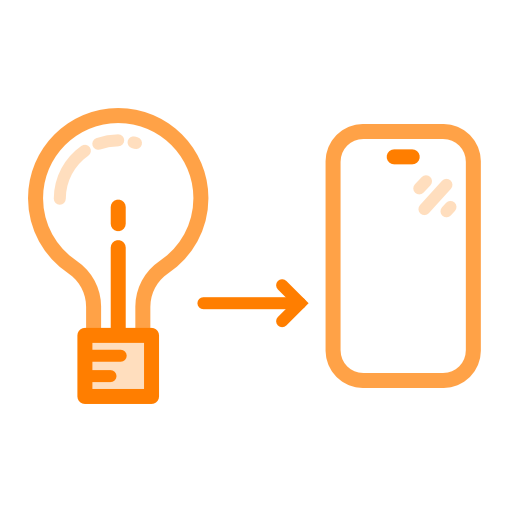
Custom App Development Services
Transform Your Enterprise with Expert Crafted Digital Solutions
App Developers Building Future-Ready Mobile, Web and Desktop Experiences
Code Heroes specialises in elevating your business through custom software applications. We ensure your solution is robust, user-centric, and integrated seamlessly with your existing systems — discover our expertise by booking a call today.
Elevate Your Digital Presence with Custom App Development
Unlock the full potential of your enterprise with Code Heroes. Each step of your journey with us is a stride towards innovation, efficiency, and market leadership. Let our expertly crafted mobile and software applications power your business into a new era of digital engagement.
At Code Heroes, we do more than just code; we bring your ideas to life. Tailored precisely to your business needs, our comprehensive service suite supports you from initial concept to final release—and beyond.
Experience seamless integration with existing systems, witness the unfolding of exceptional user experiences, and benefit from the ongoing support that keeps your digital assets at the forefront.
Benefits at a Glance:
-
Align your business goals with a technology strategy that delivers, focusing on high-impact features for maximum ROI.
-
Engage and delight your customers with user experiences crafted by people-first design methodologies.
-
Captivate your audience with interfaces that resonate with their needs and amplify your brand's identity.
-
Propel your business forward with applications that span mobile, desktop, and web ecosystems built from a shared, efficient codebase.
-
Rely on custom backend solutions that scale with your business, guaranteeing performance and security.
-
Enjoy peace of mind with our steadfast support, keeping your applications current and competitive.
Your digital transformation awaits. Book a call with Code Heroes today, and let us champion your next software endeavour.
Gain the Edge in a Crowded Digital Market
In today's rapidly evolving tech landscape, staying ahead isn't just about having a digital presence—it's about standing out. As a leader in technology, information, or digital strategy, you're tasked with not just navigating but pioneering through an oversaturated market. Your challenges are unique: you need to cut through the noise, harness innovation, and deliver value at every user interaction. Code Heroes understands that these are more than tasks on a to-do list—they are imperatives for survival and success.
But users' expectations are rising. They demand functionality and seamless and engaging experiences. Your projects must be delivered faster without sacrificing quality or performance.
Additionally, the integration of new software with existing systems presents a complex puzzle. Each piece must fit perfectly to create a cohesive digital ecosystem that is both resilient and adaptable. With these challenges comes the pressure to deliver, to be both timely and timeless in your solutions.
Specifically, you might be grappling with:
-
Standing out when every competitor is a click away.
-
Creating intuitive and compelling user experiences that attract and retain customers.
-
Balancing rapid deployment with robust, scalable development.
-
Seamlessly integrating new systems with legacy processes.
Strategic Solutions for Next-Level App Success
In the face of digital market saturation, Code Heroes is your strategic partner, delivering custom app development services designed to propel your business upward and onward. We bring together a team of visionary developers, creative minds, and technology enthusiasts—all united by a passion for crafting not just software but digital experiences that resonate and endure.
At Code Heroes, it's our people—their ingenuity, dedication, and ability to pivot—that drive client success and deliver unparalleled value.
With a culture that fosters personal responsibility and collaborative decision-making, we challenge the status quo and embrace innovation at every turn. We create digital products that are functionally superior and intuitively aligned with user needs. We don't just keep pace with technology; we set the rhythm. Quality is a promise—a commitment to excellence evident in every line of code we write and every user interface we design.
Discover the difference a team of dedicated digital experts and app developers can make. Connect with Code Heroes and turn today's challenges into tomorrow's triumphs. Book a discovery call, and let's start shaping the future—together.
Our Best-in-Class Approach Becomes Your Competitive Advantage
-

Tailored App Development
Every project is unique, meticulously crafted to fit your business needs and exceed your strategic goals.
-

Diverse Expertise
Tap into a wealth of knowledge spanning various industries and technologies, all aimed at driving your project's success.
-

End-to-End Service
From initial concept to final release—and beyond—we provide a comprehensive suite of services to bring your vision to life.
-

UX/UI Design
Our designs are a blend of aesthetics and functionality, delivering an intuitive user experience that captivates and retains.
-

Built-In Security
Security isn't an afterthought—it's woven into the fabric of our development process, safeguarding your data and your users.
-

Stress-Free Integration
We ensure seamless integration of new software into your existing digital landscape, making complexity feel like simplicity.
-

Compliance
Navigate the complexities of regulatory standards with us; compliance is at the core of our development ethos.
-

Production Support
Beyond launch, our ongoing support and upgrades are the pillars that keep your application performing at its peak.
Custom App Development Services
A digital presence is not just a luxury but a cornerstone of business strategy. In this landscape, developing a custom app can provide a significant competitive advantage for your business.
Code Heroes crafts bespoke application solutions that are tailored to your business needs and designed to scale and evolve with your growth trajectory. We understand the intricacies of the digital climate and translate that into powerful, user-centric applications that drive engagement and operational efficiency. Our commitment is to turn your challenges into digital success stories.
With expertise in both general app development and specialised mobile app creation, our team ensures that your business leverages the latest technologies for maximum impact. We stand ready to translate your vision into a digital reality that resonates with your target audience.
iOS App Development
iOS App Development – Where sophistication meets functionality, our iOS apps provide seamless performance and an elite user experience, ensuring your presence in the Apple ecosystem stands out.
Android App Development
Android App Development – Unlock the vast potential of the most widely used mobile platform with our Android applications, delivering versatility and reach to capture a local or global audience.
Revolutionise Your Business with AI-Powered App Development
Artificial intelligence (AI) is reshaping how businesses operate, offering unparalleled personalisation and efficiency. AI app development opens the doors to predictive analytics, automated customer service, and intelligent operations.
However, integrating AI into apps presents complex challenges, from data handling to algorithmic precision, demanding expert navigation to harness its full potential.
At Code Heroes, we understand the complexities of AI technology and how to tailor it to empower your business operations. Our team of skilled developers bridges the gap between complex AI technologies and user-friendly app interfaces, ensuring your app not only performs exceptionally but also elevates your customer experience to new heights.
Leveraging AI within apps requires both technical expertise and strategic foresight—a combination that Code Heroes offers. We explore the unique dynamics of your business to implement AI solutions that solve current problems and anticipate future needs.
Whether it's through intelligent chatbots, personalised recommendations, or operational automation, our AI app development services position your business to stay ahead in a competitive digital landscape.
Explore the possibilities of AI app development, where innovative solutions meet tangible business outcomes.
Pioneering Digital Identity Verification for a Secure Future
The digital transformation of identity verification represents a significant leap towards operational efficiency and security for businesses and individuals alike.
ID verification processes are not just a regulatory formality; they are integral to the trust and safety framework of modern digital interactions. Code Heroes crafts future-proof digital solutions that meet the rigorous demands of security, privacy, and user accessibility. Our expertise in digital licence verification platforms is a testament to our commitment to innovation and excellence. With such platforms, businesses can streamline their operations, reduce fraud, and enhance the user experience—all while ensuring compliance with privacy laws and security protocols.
Navigating the challenges of digital identity requires an experienced partner. Discover how Code Heroes facilitates this transition and fortifies your digital operations with digital licence verification and digital identity solutions.
Case Study: Queensland Digital Licence Project
In 2023, Code Heroes, alongside Aliva and the Thales Group, achieved a significant milestone in digital identity solutions for Queensland, Australia. We launched the Digital Licence app in partnership with the Department of Transport and Main Roads (TMR), welcoming a new era of identity verification. The app was an immediate success—with tens of thousands of downloads, it became the most downloaded app on the App Store within a day.
The app lets residents carry their driver’s licence, photo ID, and marine licence digitally. Our focus was to deliver an app that upholds strict standards for privacy and accessibility while ensuring seamless user data protection. Complying with international mDL standards (ISO 18013-5), the app is designed for both local utility and global interoperability.
As Queensland continues its journey as a leader in digital innovation, we are dedicated to evolving the Digital Licence app with ongoing enhancements informed by user feedback.
Limited Time Offer
Launch Your Vision with a Complimentary App Project Brief
Embarking on app development can be daunting without a clear roadmap. Code Heroes transforms your spark of innovation into a comprehensive, strategic project brief—your first solid step towards actualising your app.
Let us plot the course from concept to launch. We translate your brilliant app ideas into articulate, detailed plans that align with technical requirements and market expectations.
For a very limited time, Code Heroes is offering our project brief service at no cost. It's our investment in your potential, a testament to our belief in bringing groundbreaking ideas to fruition. Schedule your complimentary project brief discovery session now.
Delivering Cross-Platform App Development with Flutter
Adaptability and speed are paramount. That's why Code Heroes leverages Google's Flutter to create multi-platform applications with unparalleled consistency and performance. Flutter isn't just a development tool—it is the gateway to crafting robust, scalable apps that excel in functionality and user experience across both iOS and Android platforms.
By harnessing the power of Flutter, we tap into its core benefit: a single codebase for multiple platforms. This translates to about 90% shared code between iOS and Android, streamlining the development process significantly. The result? A more efficient path from concept to deployment, ensuring you get to market fast without sacrificing quality.
The 'hot reload' feature in Flutter is key. It allows us to see updates in real time, shaving off countless hours from the development timeline. For our partners, this means reduced costs and a product that evolves at the speed of their demands.
Quality, efficiency, and velocity are not just promised—they are delivered.
So, choose to be future-ready with our Flutter expertise. Explore the full spectrum of our Flutter capabilities today.
Ready to Elevate Your Digital Presence?
Don't let the digital future pass you by. Connect with Code Heroes today and start the journey towards an app that sets industry standards. Our team is on standby, ready to transform your ideas into digital realities that propel your business forward.
Book Your Strategy Call Now — Unlock the potential of your project with expertise that delivers.
Schedule a Call Today
It's time to turn your vision into an innovative digital reality. Take the first step towards building something extraordinary with Code Heroes. Our team of experts is ready to discuss your project needs and how we can exceed them.
Book Your Strategy Call Now
Frequently Asked Questions (FAQs)
-
App development timelines vary greatly, depending on complexity and feature set. On average, a basic app might take 3-6 months, while more complex projects could extend to over a year. Code Heroes works diligently to optimise development time without compromising on quality.
-
The cost of app development depends on the app's features, complexity, and design. For precise estimates, our team can provide a tailored quote based on your specific requirements. Get in touch.
-
App development costs vary based on app complexity, feature set, chosen platforms (iOS/Android), and technical specifications. Costs rise with the addition of custom features or advanced technologies. Developer expertise and geographic location also affect pricing. More complex apps require more time and resources, increasing the overall investment.
-
Selecting the best mobile app developer involves evaluating their portfolio, client testimonials, development approach, and technical expertise. Look for a developer like Code Heroes that aligns with your business values and has proven experience in your project's domain.
-
Custom app development is personalised to meet specific business needs, offering tailored features and flexibility. Off-the-shelf software provides a generic solution, often with fixed functionalities, suitable for a broad user base. Custom apps align closely with unique business processes, while pre-built software may require businesses to adapt to its limitations.
-
AI app development incorporates machine learning and data analysis to create apps that can predict, learn, and make decisions. This adds complexity to the development process but results in smarter, more intuitive applications. Code Heroes specialises in embedding these innovative technologies seamlessly.
-
Absolutely. A custom AI app can automate routine tasks, provide insightful analytics, and enhance decision-making processes, leading to improved efficiency and productivity for your business.
-
Yes, Code Heroes is proficient in cross-platform development, creating apps that are compatible with both Android and iOS devices. This ensures a comprehensive user reach.
-
Identity verification apps use personal data, documents, and sometimes biometrics to confirm a user's identity. These apps ensure the verification process is secure, efficient, and user-friendly, integrating with various systems for real-time authentication.
-
The best app builder depends on your specific needs. However, platforms that offer flexibility, robust features, and scalability, such as Flutter, are generally preferred. Code Heroes can help determine the most suitable builder for your project.
-
To start, you need a clear concept, target audience, and objectives for your app. It's also helpful to have any initial designs or features in mind. From there, Code Heroes can assist with shaping these into a comprehensive project brief.
-
Yes. Security is a top priority for Code Heroes. We implement best practices, including encryption and secure data handling, to ensure your app is protected against threats and vulnerabilities.
-
We do. Code Heroes provides ongoing support and maintenance to ensure your app remains up to date with the latest operating system versions, security updates, and feature enhancements.
For any other questions or specific concerns, don't hesitate to reach out. We're here to ensure your tech journey is as seamless as possible.
Have questions, but you are not ready to schedule a call?
Start a chat now and talk with one of our expert team.










